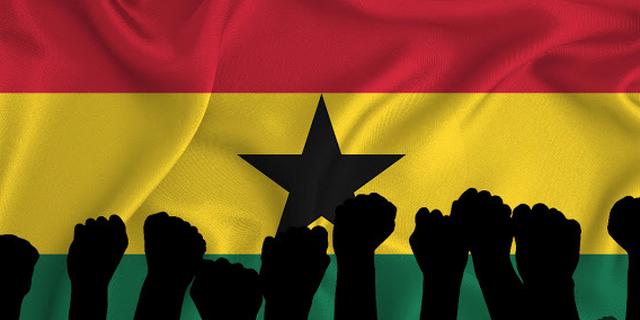After following proceedings with bated breath on Wednesday last week, most business chieftains, especially those of foreign multinational, ended the day relieved that the public #fix the country demonstration did not turn violent and lead to clashes with security forces. The demonstration was organized under the social media banner #FixTheCountry and was joined by thousands of people wearing masks and carrying placards, who marched in the streets of Accra, on Wednesday, a public holiday in Ghana which enabled hoards of salaried workers to add to the numbers as well.
During the run up to the demonstration many corporate executives, entrepreneurs and investors had feared that it could descend into violent confrontations that in turn could have triggered an extended period of civil unrest. However most public commentators now agree that the way the protests went serve as a model for future demonstrations under the campaign; although now that the protestors have been allowed to have their say, they are likely to sit back and see whether they will also be given their way before considering another event like last week’s.
Some of the earlier fears had emanated from the active entry of the main political opposition party, the National Democratic Congress, into the campaign, with the possibility that some of its members might deliberately try to engineer a violent confrontation with security forces in order to make the incumbent government appear repressive, Other fears emanated from the recent conduct of some security agents, which has been seen as excessively heavy handed, and which also could have triggered off wider civil unrest.
Indeed, some multinational corporations operating in Ghana have drawn up contingency plans to be implemented if the protests spiraled into violent confrontations. Some of those plans considered a temporary suspension of all but absolutely essential operations, which, if actually implemented, could have dire effects on the levels of economic activity in the country.
As it turned out however, the protests remained peaceful, with very little tension between the thousands of protestors who turned out, and security agents who similarly were deployed in large numbers. The NDC as an institution prudently stayed out of the way in order not to give the protests a dampening partisan political tone, while the security agents assigned to the protests showed as much calm and composure as the protestors themselves.
This has created confidence on the part of the business community that the still ongoing protests will not descend into civil unrest. While business leaders understandably have tried to stay above the fray by refusing to publicly take sides – fearing being caught between the sentiments of the protestors and the directly contrasting position of the government – most of them are hoping that now the protestors have vent their spleen, they will retreat back to their social media campaign which has little danger of sparking off violent conflict.
Confidence that this will happen is rising. The government’s mid-year review of the 2021 budget, presented to Parliament by Finance Minister Ken Ofori-Atta a fortnight ago was heavy on empowering the youth, although the semantics of the presentations suggest that this was deliberately aimed at ameliorating their anger rather than the result of a huge deal of new thinking. Nevertheless, the youth are likely to see the emphasis on them inserted in government’s economic game plan going forward as a victory which should calm them down and thereby afford government some space.
The chieftains of multinationals have been reporting back positively to their respective global headquarters that the situation can be expected to remain stable going forward.
“Both sides’ ability to adhere to their pledges is an important matter for the risk outlook,” Kobi Annan, an analyst at the London- and Accra-based Songhai Advisory said in a note to investment clients last Wednesday after the protests. “Thus far, they have,”
Socio-economic tensions were laid bare last month when authorities cracked down on protesters in the central town of Ejura, triggering an official inquiry.
President Akufo-Addo won a second term with only a small majority in parliament, and his re-election was subsequently challenged – albeit unsuccessfully – in the Supreme Court and this has put the government somewhat on the defensive politically. Last year’s tightly contested vote heightened political tensions.
Besides, the incumbent government has since been under pressure as the country struggles with economic troubles worsened by the coronavirus pandemic.
With the economy hit hard by the pandemic, the government has introduced new taxes and high fuel prices have also hiked the cost of some basic goods and services.
Lead by social media activists, the #FixTheCountry protest on Twitter has been highlighting economic problems and government management.
In May, police blocked a planned protest citing coronavirus restrictions. For Wednesday’s march, the police chief had guaranteed its safety, organisers said after meeting him
Source: Goldstreetbusiness
